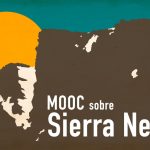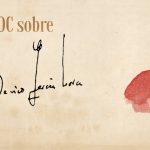

MOOC: Challenge Based Learning in Higher Education
Course Content
In this MOOC, you will:
- be introduced to CBL, its definition, origins and precursors
- learn about the benefits and drawbacks of CBL
- find out how the learning process in CBL can be structured and supported
- get an overview of the main participants and their core roles, responsibilities and competences
- identify means for meaningfully assessing CBL
Theory is combined with practical examples and testimonials of teachers and students involved in CBL projects. Resources and reflective tasks support your transition in integrating CBL into your own practice.
The challenge-based learning in higher education MOOC is aimed at teachers in higher education and anyone interested in CBL and teaching and learning in higher education.
The aim of this MOOC is to provide an overview of the theoretical considerations and practical aspects of challenge-based learning. This includes basic information about this approach to teaching and learning and practice-oriented examples, tools and resources to help you integrate CBL into your own teaching or supra-university projects within Arqus and beyond.
Course Aims:
Upon successful completion of this MOOC, you will:
- have acquired knowledge and understanding of CBL
- be able to explain the essential characteristics of CBL and parameters for putting it into practice: what is CBL, who are its main participants, what are their roles, responsibilities, competences, how do you prepare and implement CBL in your own course, and how assessment is used in CBL
More detailed learning objectives for each unit can be found in the respective descriptions.
Course Syllabus
The course contains four units covering the following topics:
- Unit 1: Introduction to CBL
- Unit 2: CBL makers
- Unit 3: CBL in action
- Unit 4: Assessment in CBL
Each unit contains videos explaining the essential aspects of the topic. Some videos are accompanied by relevant practical examples and testimonials. Each unit includes self-study resources and/or tasks to support learning and reflecting about the content. It comes with a list of recommended literature and concludes with a multiple-choice quiz.
Course Additional Information
Previous Knowledge
none
Certificate
For actively participating in the course you will receive an automatic certificate which includes your username, the course name as well as the completed lessons. We want to point out that this certificate merely confirms that the user answered at least 75% of the self-assessment questions correctly.
Licence
This work is licensed under CC BY-NC 4.0
The course language is English. The European Commission's support for the production of this MOOC does not constitute an endorsement of the contents, which reflect the views only of the authors, and the Commission cannot be held responsible for any use which may be made of the information contained therein.
Periods
| Start date | End date | Start time | End time | Target Audience | Meetings | Code | Price | ||||
| 01.01.1970 | 01.01.1970 | 00:00 | 00:00 | -A |


